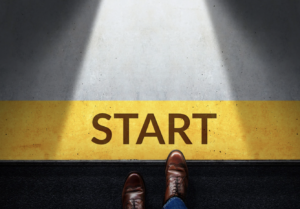Ads
Steps to Becoming a Wine Buyer
Wine buying is a highly rewarding occupation for those with a passion for the industry. Becoming a wine buyer requires a deep understanding of the various aspects of the job. By learning about the steps involved in becoming a wine buyer, you can maximize your career potential and achieve success in this field. Wine buyers play a crucial role in sourcing and selecting wines for restaurants, suppliers, and events. This guide will provide an overview of what a wine buyer does, the skills required, and how to embark on a career in this exciting industry.
What Does a Wine Buyer Do?
A wine buyer is responsible for sourcing and selecting wines from both local and international markets. They work closely with distributors to negotiate prices based on market trends, consumer demand, and their own product knowledge. Wine buyers are experts with a keen palate and meticulous attention to detail. In addition to selecting wines, they must also ensure compliance with import regulations, manage inventory levels, and maintain quality control standards.
In larger organizations, teams of wine buyers may specialize in different areas, such as foreign wines. Depending on their role, wine buyers may also handle warehousing, pricing, and tracking of wine purchases. Junior buyers often have the opportunity to learn from experienced industry professionals, gaining valuable insights into the trade. Wine buyers may also be involved in planning and coordinating wine promotions, as well as cultivating in-house educational programs and industry partnerships.
Skills Required for Wine Buyers
To excel as a wine buyer, you will need a unique set of skills, including:
1. Negotiation Skills: Wine buyers must be adept at negotiating with wholesalers to secure the best possible prices for their wines. Strong negotiation skills, backed by industry knowledge and understanding of wine quality and value, are essential for success in this role.
2. Technical Wine Knowledge: Wine buyers should have a deep understanding of wine production, including the history of wine, where wines are produced, and the factors that contribute to exceptional wines. Tasting experience can also help buyers identify quality wines and make informed purchasing decisions.
3. Market Knowledge: Beyond taste, wine buyers must have a solid grasp of market trends and forces to make informed purchasing decisions. By analyzing market patterns, buyers can identify high-demand wines that are likely to appeal to consumers.
4. Organizational Skills: Wine buyers need strong organizational skills to manage supply, inventory, and quality control. They must also plan and coordinate trade shows, industry events, and product launches. Well-organized buyers can anticipate fluctuations in demand and adjust their purchasing strategies accordingly.
5. Interpersonal Skills: Wine buyers interact with a wide range of stakeholders, including clients, suppliers, industry experts, and event planners. Strong interpersonal skills can help buyers build relationships and establish a reputation within the wine community. A shared passion for wine and a willingness to learn can facilitate collaboration and partnerships within the industry.
How to Become a Wine Buyer
There are several paths to becoming a wine buyer, but these steps can help you achieve success in this field:
1. Learn About Wine: Attend trade events and tastings to expand your knowledge of the industry. Visit vineyards and wine-producing regions to gain practical experience and insight into the wine-making process. Subscribe to industry publications and websites to stay informed about industry trends and developments.
2. Gain Industry Experience: Start by working in entry-level positions within the wine industry, such as retail sales or hospitality. Building relationships with industry partners and gaining hands-on experience can help you develop the skills necessary to succeed as a wine buyer. Consider pursuing certifications, such as becoming a sommelier, to enhance your expertise and credibility in the industry.
3. Fill CV Gaps: Tailor your resume to highlight relevant skills and experiences that align with the requirements of a wine buyer. Look for opportunities to enhance your skills and knowledge, such as participating in wine tasting events or industry workshops. Employers are more likely to hire candidates who demonstrate a strong understanding of market trends and purchasing strategies.
4. Start as a Junior Buyer: Some larger companies offer junior buyer positions that allow you to learn from experienced professionals in the field. Working as a junior buyer can provide valuable insights into the industry and help you advance your career within the organization. You may also consider staying with a larger company and working as part of a team to gain experience and expertise.
5. Complete WSET Courses: Consider enrolling in Wine and Spirit Education Trust (WSET) courses to expand your knowledge and network within the industry. WSET courses cover a wide range of topics, including wine tasting, production, and service. Completing these courses can enhance your credentials and demonstrate your commitment to professional development.
The WSET offers a four-level course structure:
– Level One Award: Introduces students to basic wine styles, grape varieties, food and wine pairing, and best practices for serving and storing wine.
– Level Two Award: Builds on the foundational knowledge from level one and covers topics such as winemaking processes, environmental factors, and the impact on wine quality.
– Level Three Award: Delves deeper into the geography, viticulture, and winemaking techniques that influence wine production. Students are also required to participate in guided wine tastings to develop their palate and expertise.
– Level Four Diploma: The highest level of the WSET course structure, the diploma emphasizes detailed knowledge of wine production, business operations, and regional factors that influence wine quality.
6. Consider the Master of Wine Qualification: While not required, passing the Master of Wine theoretical exam can demonstrate your expertise and credibility in the industry. The three-stage exam, held at the Institute of Masters of Wine in London, evaluates candidates’ practical, theoretical, and business knowledge of wine. Achieving the Master of Wine title can position you as a wine expert and enhance your reputation within the industry.
In conclusion, becoming a wine buyer is a multi-faceted journey that requires a blend of industry knowledge, technical expertise, and strong interpersonal skills. By following these steps and investing in your professional development, you can maximize your career potential and succeed in this dynamic and rewarding field. Whether you are just starting out in the wine industry or looking to advance your career as a seasoned professional, becoming a wine buyer can be a fulfilling and lucrative career path.






